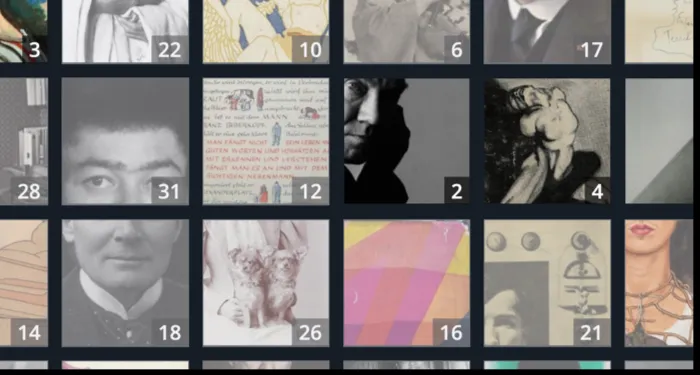
An Advent Calendar for Books Entering the Public Domain in 2024
Welcome to Today in Books, our daily round-up of literary headlines at the intersection of politics, culture, media, and more.
What Will Enter the Public Domain in 2025?: A Festive Countdown
An extremely fun and useful advent calendar style countdown of major works (books and otherwise) entering the public domain in 2024. It’s also headlined with this handy rubric for understanding what is entering the public domain where (and why):
- works by people who died in 1954, for countries with a copyright term of “life plus 70 years” (e.g. UK, Russia, most of EU and South America);
- works by people who died in 1974, for countries with a term of “life plus 50 years” (e.g. New Zealand, and most of Africa and Asia);
- films and books (incl. artworks featured) published in 1929 for the United States.
Works by Matisse, Faulkner, Woolf and bunch of others. Well-packaged resource that is now in my bookmarks.
Of course the girls are reading horny fairy books. It’s cheaper than travel and more fun than therapy
In The Guardian, Emily Mulligan argues that the rise of Romantasy has roots the the real-world experience of the (largely) women who have made the genre the cultural juggernaut it now is:
In fact, of all the people I know who have read dozens of these smutty fantasy books and share the obsession, they mostly have senior jobs, stressful workloads and significant responsibilities. Maybe that’s why they need to immerse themselves in worlds of demons, swords, leather outfits and cauldrons. Things are simpler. Hotter. There are no spreadsheets.
I have seen over the years many explanations for this or that hot phenomenon reduced to “escapism,” a term so vague that it can be applied to anything and clarifies nothing. Are the feature of romantasy uniquely adapted? Or is it what happens to be available at the moment and has taken on a life of its own? Fascinating to consider, but impossible to know.
The New Yorker’s Best Books of 2024
By now, the best of lists are starting to blur together, and some consensus is starting to form even outside James. So my eyes are now searching for the surprises: things I haven’t seen elsewhere and in some cases didn’t know (or remember) they existed. And most lists of any real breadth have a few that get me to look them up. Among The New Yorker’s Essential Reads picks, here are two that stopped my scrolling: The Calculation of Volume and The Silence of the Choir. Unsurprisingly, they are from smaller presses and in translation, both of which are welcome additions to my future reading considerations.
Is BookTok Past Its Peak?
On Book Riot, Arvynn Cerezon talks with some publishing folks about the state and trajectory of BookTok. The part that stood out to me:
Harris also predicted that as the rules governing BookTok change, the importance retailers place on TikTok will shift. She sees a slow phase-out of the “As Seen on BookTok” tables, which have been popular in bookstores for the past four years. In a similar vein, publishers will most likely abandon the “TikTok sensation” perma-stickers that have recently become a staple element on paperback covers. “Much like BookTube and Bookstagram, BookTok will still be an important piece for authors and publishers to target when promoting their books; this will likely ring truer for fiction authors than nonfiction, as has been the case on the platform thus far,” she said.
What are you reading? Let us know in the comments!
The comments section is moderated according to our community guidelines. Please check them out so we can maintain a safe and supportive community of readers!











Leave a comment
Join All Access to add comments.